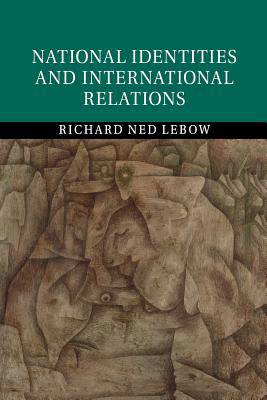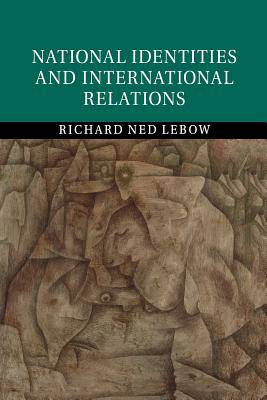
- Afhalen na 1 uur in een winkel met voorraad
- Gratis thuislevering in België vanaf € 30
- Ruim aanbod met 7 miljoen producten
- Afhalen na 1 uur in een winkel met voorraad
- Gratis thuislevering in België vanaf € 30
- Ruim aanbod met 7 miljoen producten
Zoeken
€ 60,95
+ 121 punten
Uitvoering
Omschrijving
Identity is the master variable for many constructivist scholars of international politics. In this comparative study, Richard Ned Lebow shows that states do not have identities any more than people do. Leaders, peoples, and foreign actors seek to impose national identifications consistent with their political projects and psychological needs. These identifications are multiple, fluid and rise in importance as a function of priming and context. Leaders are at least as likely to invoke national identifications as rationalizations for policies pursued for other reasons as they are to be influenced by them. National identifications are nevertheless important because they invariably stress the alleged uniqueness of a people and its country, and are a principal means of seeking status and building self-esteem. Lebow tracks the relative appeal of these principles, the ways in which they are constructed, how they influence national identifications, and how they in turn affect regional and international practices.
Specificaties
Betrokkenen
- Auteur(s):
- Uitgeverij:
Inhoud
- Aantal bladzijden:
- 280
- Taal:
- Engels
Eigenschappen
- Productcode (EAN):
- 9781316617380
- Verschijningsdatum:
- 22/08/2019
- Uitvoering:
- Paperback
- Formaat:
- Trade paperback (VS)
- Afmetingen:
- 152 mm x 229 mm
- Gewicht:
- 381 g

Alleen bij Standaard Boekhandel
+ 121 punten op je klantenkaart van Standaard Boekhandel
Beoordelingen
We publiceren alleen reviews die voldoen aan de voorwaarden voor reviews. Bekijk onze voorwaarden voor reviews.











